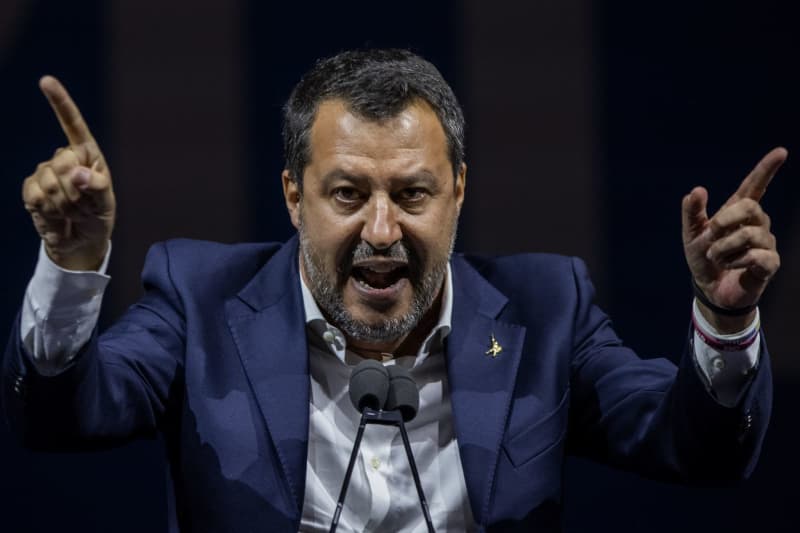Matteo Salvini, the far-right Deputy Prime Minister of Italy and leader of the League party, faces serious legal challenges that could result in a six-year prison sentence. The Sicilian court is set to deliver its verdict on his actions from August 2019 when he prevented the Open Arms, a charity rescue boat, from docking in Italy while carrying around 160 migrants who had made the perilous journey across the Mediterranean. Salvini, who was the interior minister at that time, is accused by public prosecutors of kidnapping and dereliction of duty, as the situation on the boat deteriorated over three weeks, leading to desperate attempts by some migrants to swim to shore.
The legal proceedings against Salvini began in Palermo over three years ago and have drawn significant public attention. The Open Arms found itself stranded at sea amidst growing humanitarian concerns and protests, driven by the appalling conditions on board. The public outrage surrounding the government’s strict stance on immigration and the treatment of migrants highlights the larger debate in Italy and Europe regarding how to handle the influx of people fleeing conflict and poverty in Africa. As the condition of those on the Open Arms worsened, the political ramifications of Salvini’s decision became increasingly evident.
In response to the accusations, Salvini has characterized the legal actions as politically motivated, claiming he is being persecuted by leftist judges. His defense team is calling for acquittal, arguing that Salvini was merely fulfilling his duties in enforcing Italy’s immigration laws. The implications of the case extend beyond Salvini, as it represents a larger conflict within Italy about immigration policies and the treatment of asylum seekers. Salvini’s hardline stance on immigration has become a core element of his political identity and has significantly influenced Italy’s political landscape in recent years.
Despite the potential gravity of a conviction, Salvini has stated his intention to remain in office and continue in his role as minister of infrastructure and transport, showing little regard for potential legal consequences. This assertion illustrates the resolve and determination of Salvini and his supporters, who stand firmly behind him amidst the ongoing legal battles. The verdict, scheduled for Friday, is crucial; however, it is important to note that it is not final and appeals could follow.
As a prominent figure in Prime Minister Giorgia Meloni’s coalition government, Salvini’s political fate is entwined with the broader direction of Italy’s immigration policies. The ruling parties, largely aligned with Salvini’s views on immigration, have defended him vigorously throughout the legal process. His approach to migration was particularly visible during his tenure as interior minister in 2018 and 2019, a period marked by strict control over migrant rescue operations and increasing tensions between humanitarian organizations and the Italian government.
In summary, Matteo Salvini’s impending court verdict encapsulates a significant moment in Italy’s struggle with immigration policy, drawing attention to the interplay between political motivations and legal accountability. The outcome of this case may not only determine Salvini’s personal future but also indicate the evolving political climate in Italy regarding the treatment of migrants and the direction of the nation’s far-right policies. As the situation unfolds, it is clear that the repercussions of this case will extend beyond the courthouse and influence Italy’s ongoing debates about migration and national identity.

